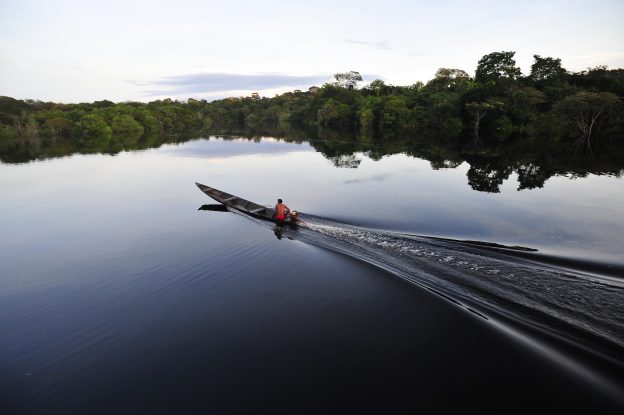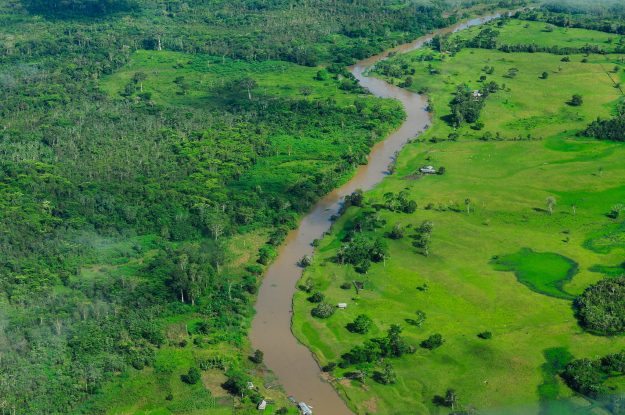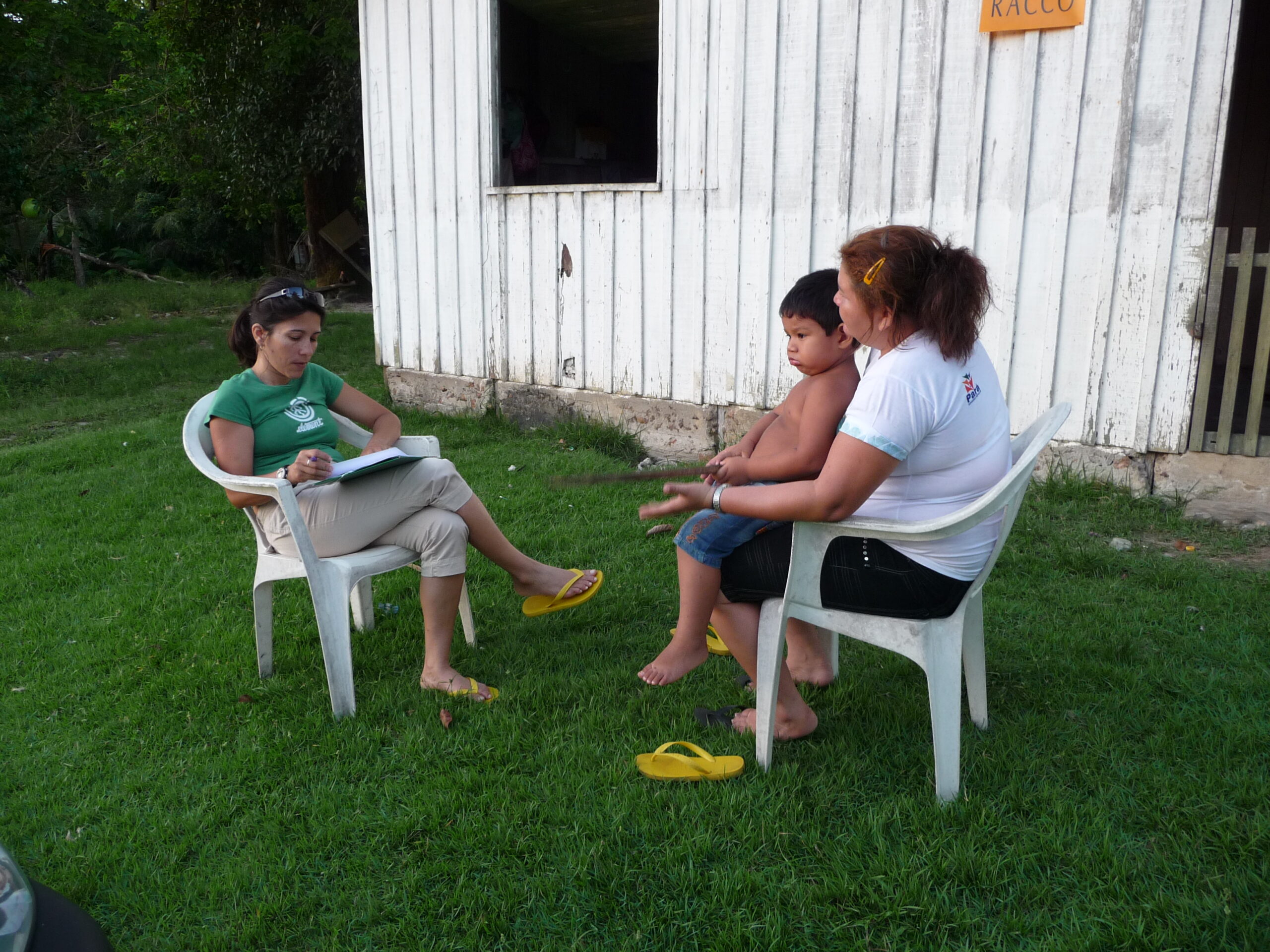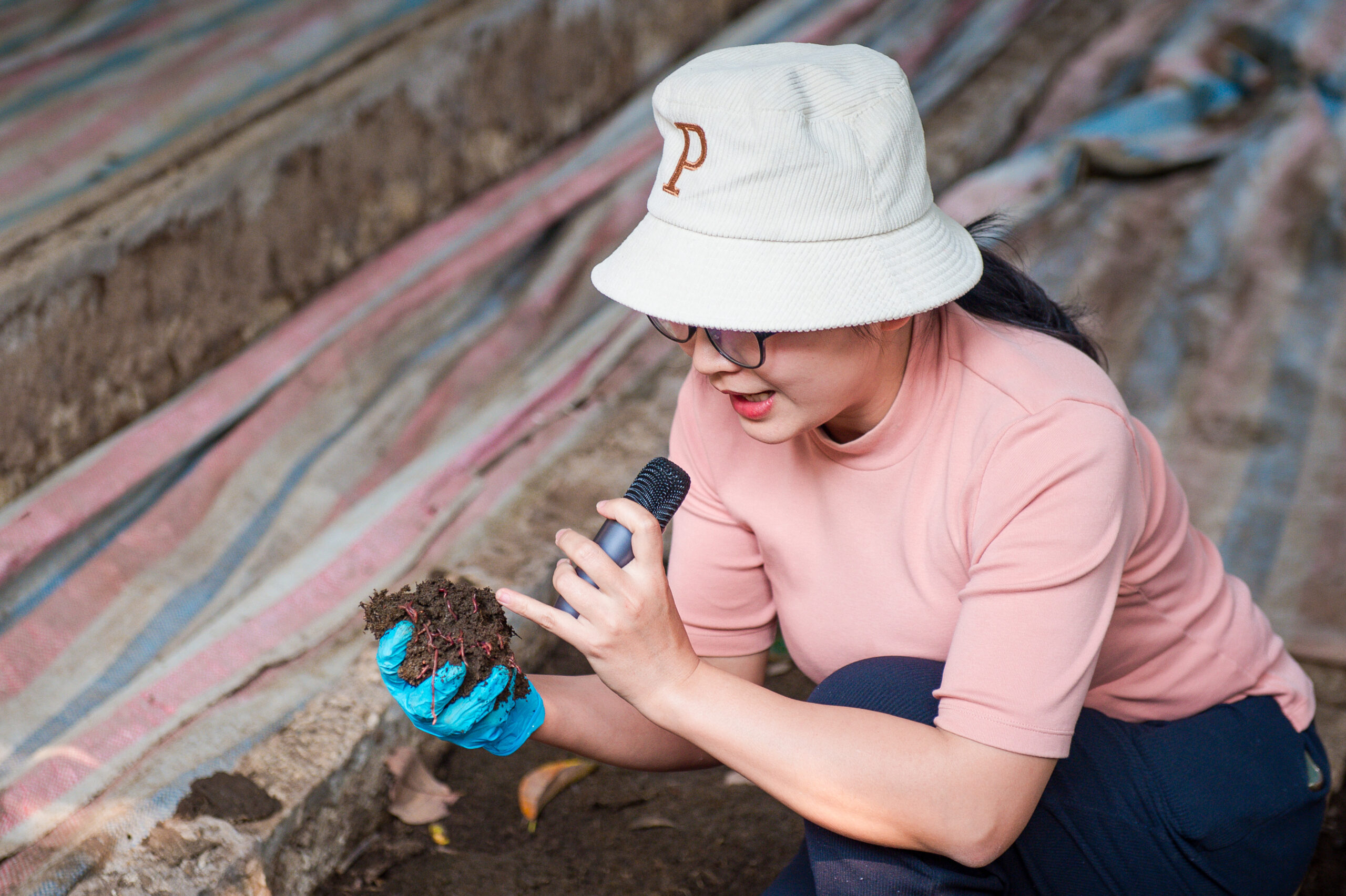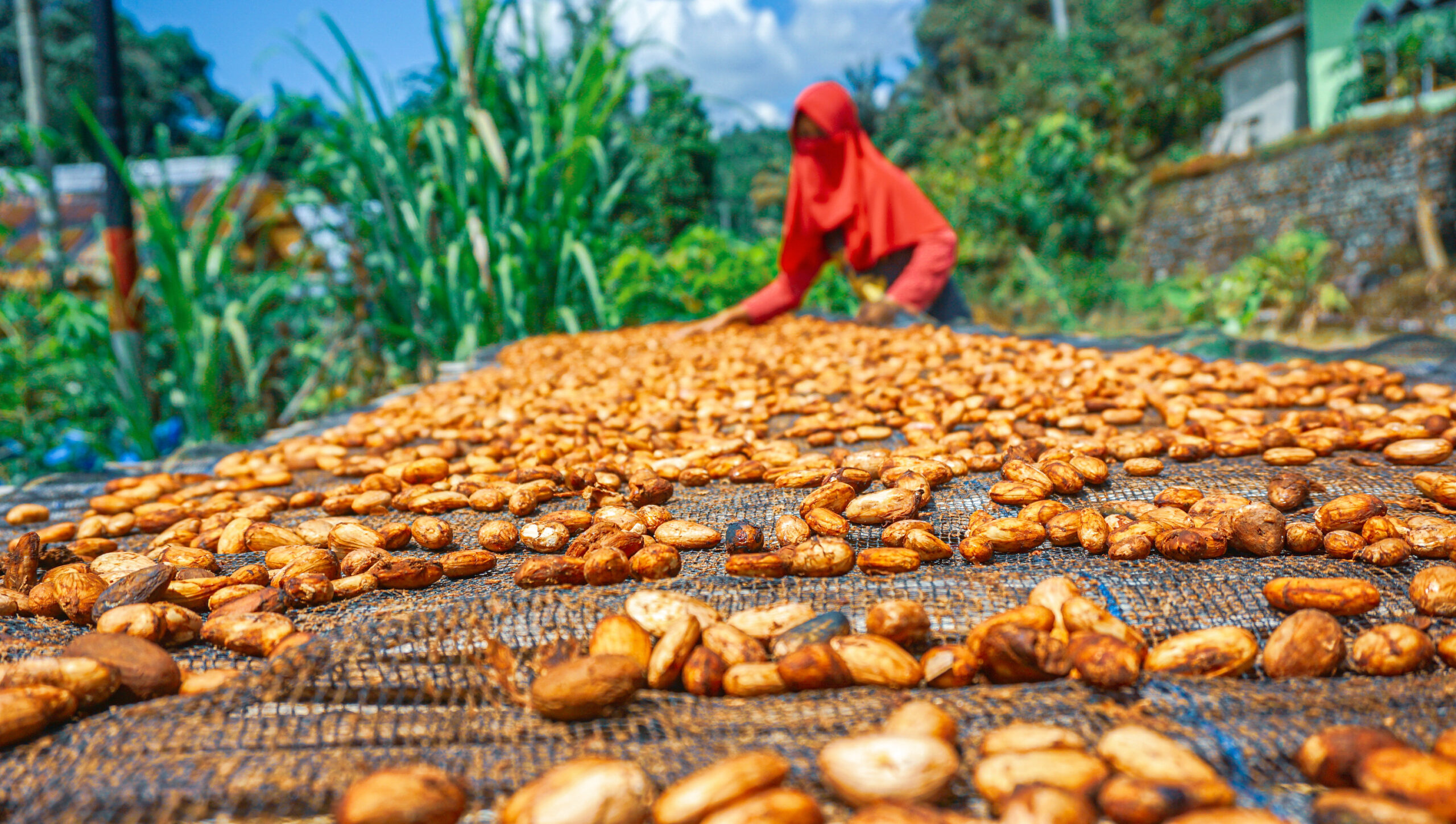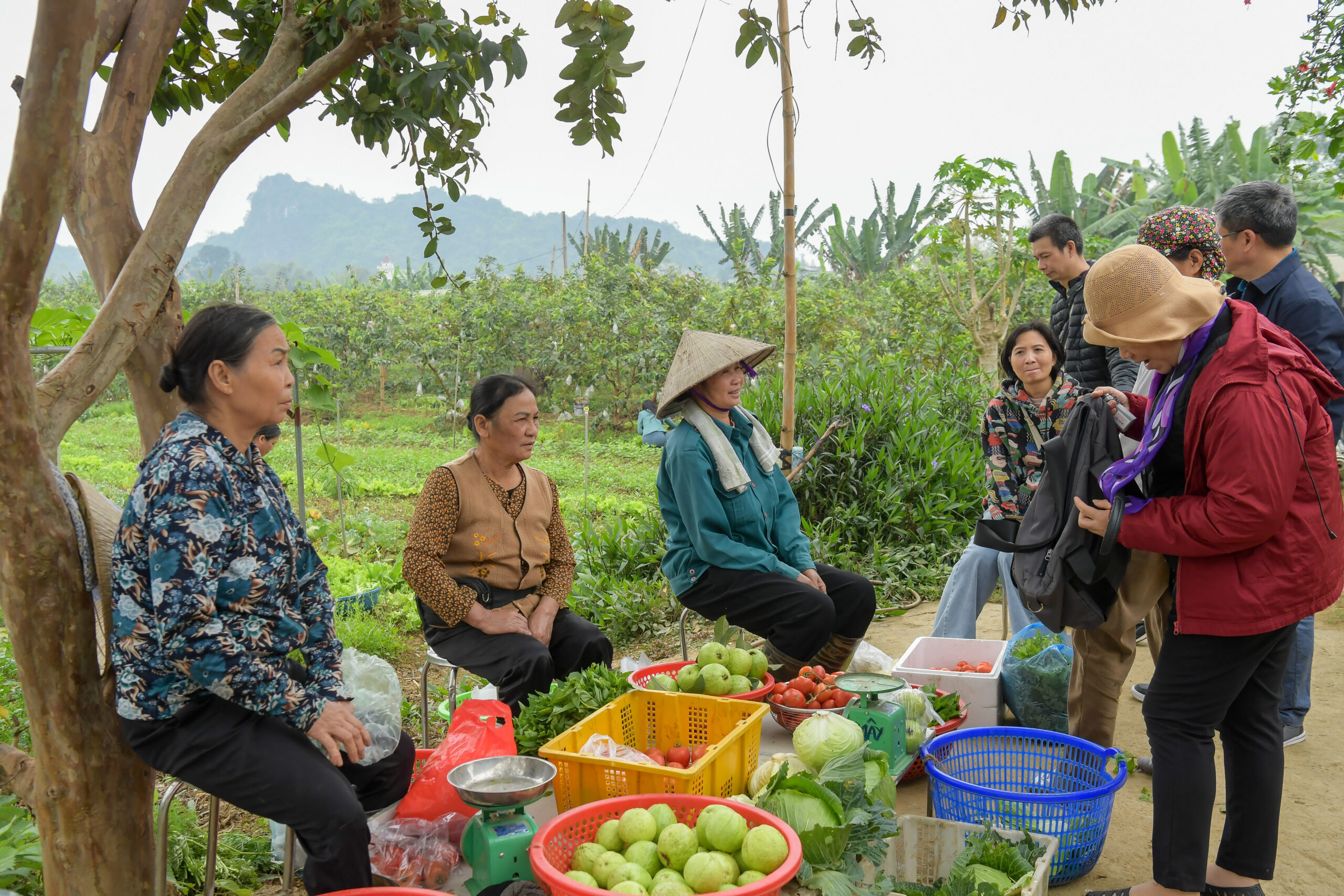ÔÇťBut with training, […] Youlearn to reforest, not burn the forest, if you want to earn money.ÔÇŁ┬á
In the Brazilian Amazon, women are driving transformation. Through collective microenterprises, rural women are not only enhancing their leadership and gaining access to decision-making spaces, but they are also contributing to more sustainable land-use practices. 
In a recent paperpublished in┬áTropical Forest Issues 63 ÔÇô Women as Stewards ofForests, weexplore howholisticsupportfromgovernments, NGOs,andtheprivate sector canstrengthenthesegrassroots initiatives, drivingsustainabledevelopmentwhile promoting genderequality.
Drawingon interviews with 65 womeninvolved in 11 collectivemicroenterprisesacrossthestatesof Acre and Pará, our researchhighlightsthemultidimensional empowerment theseenterprises bring. Their transformative effect ripples through social dynamics and resource governance alike.
Beyond income 
Economic empowerment extendswell beyond financial independence. Womenparticipating in these enterprises have gainedgreater influence household financial decisions andincreasedtheirinvolvement in communityorganizations. Thisengagementhas enabled them to advocate for their rights, increase their visibility in local governance andaccessessentialsupport networks. 
Collectivemicroenterprises are helping to reinforceleadership, shape┬ápoliciesand tacklekeyissuessuch as land tenureandaccess to resources. ThesewomenÔÇÖs roles asstewards┬áofthe AmazonÔÇÖs natural assets draw a powerful┬álink betweeneconomic┬áagencyandconservation, benefitingbothcommunitiesandecosystems. Notably, 42% ofparticipating households reportedshifting their land-use practices to prevent deforestation and fires, opting instead for sustainable approaches such as reforestation, soil fertility management┬áandresponsible┬ácultivationtechniques.
“I never dreamed of working with bees,ÔÇŁ said one woman from┬áNovaTimboteua, Par├í.┬áÔÇťBut with training, I learned how to care for bees and what plants they need. Youlearn to reforest, not burn the forest, if you want to earn money.ÔÇŁ┬á

Growing collectively 
ÔÇťBefore joining the microenterprise, I had no say in household mattersÔÇŁ
Women’sparticipation in microenterpriseshas led tosignificanteconomicgains, with 60% ofhousehold income nowstemmingfromtheirwork. This financial stabilityhasenabled moreinformedspendingandinvestment┬ádecisions, with 16% of income allocatedtoproductiveassetssuch as a├ža├ş processingandbeekeeping.
The collectivenatureoftheseenterprisesstrengthensresourcepooling, the growthof local marketplace developmentand broadercommunityresilience. 
Beyond income generation, these initiatives have strengthened food security. Sixty-three percent of participants reported improved access to fruits, vegetables and animal protein. Revenues are also supporting childrenÔÇÖs education, healthcare needs and community-based financial aid.
Training programmes, led by womenÔÇÖs associations, governmentinstitutions and private initiatives, have equipped participants with technical skills in agroforestry, beekeeping and handicrafts. With 72% of training delivered within communities, entire families have joined the learning process, fostering shared knowledge and collaboration.
Continuous learning has strengthened self-efficacy, resource stewardship and market awareness, fuelling business growth and local advocacy. WomenÔÇÖs economic participation has boosted their recognition and respect within families and communities, raising self-confidence and positioning many as leaders and mentors to others. Sixty-four percent of women surveyed reported improved joint decision-making over finances, contributing to greater household equity and reducing exposure to economic or domestic abuse.
ÔÇťBefore joining the microenterprise, I had no say in household matters,ÔÇŁ one respondent shared. ÔÇťNow, my husband and I discuss everything togetherÔÇöfrom expenses to investments.ÔÇŁ
Participation has also enhanced womenÔÇÖs influence in community organisations, where they are advocating for fairer market prices, greater government support and more equitable distribution of natural resources.

Unfinished business
Despite these achievements, structural challenges remain. Limited access to credit, formal markets and essential services continues to hamper the growth and durability of women-led enterprises. These constraints highlight the need for stronger cooperativism and long-term partnerships with NGOs, private actors, public institutions and financial organisations.
Policymakers and practitioners have a crucial role to play in supporting gender equity and sustainable development in the worldÔÇÖs largest rainforest. Targeted effortsÔÇösuch as capacity building, inclusive land governance, mentorship initiatives and long-term research on gender equityÔÇöare key to ensuring the resilience and success of these women-led microenterprises.
Acknowledgment
We thank Tropenbos International for its support in publishing this research. Sharing these findings helps elevate the voices of women at the forefront of forest stewardship, contributing to the wider dialogue on gender equality and sustainable development.
You can access theTropenbos International magazine and read the full article on this link:TFI63: Women as Stewards of Forests – Tropenbos International┬á┬á
For more information on this topic, please contact: Denyse Mello at d.mello@cifor-icraf.org 


